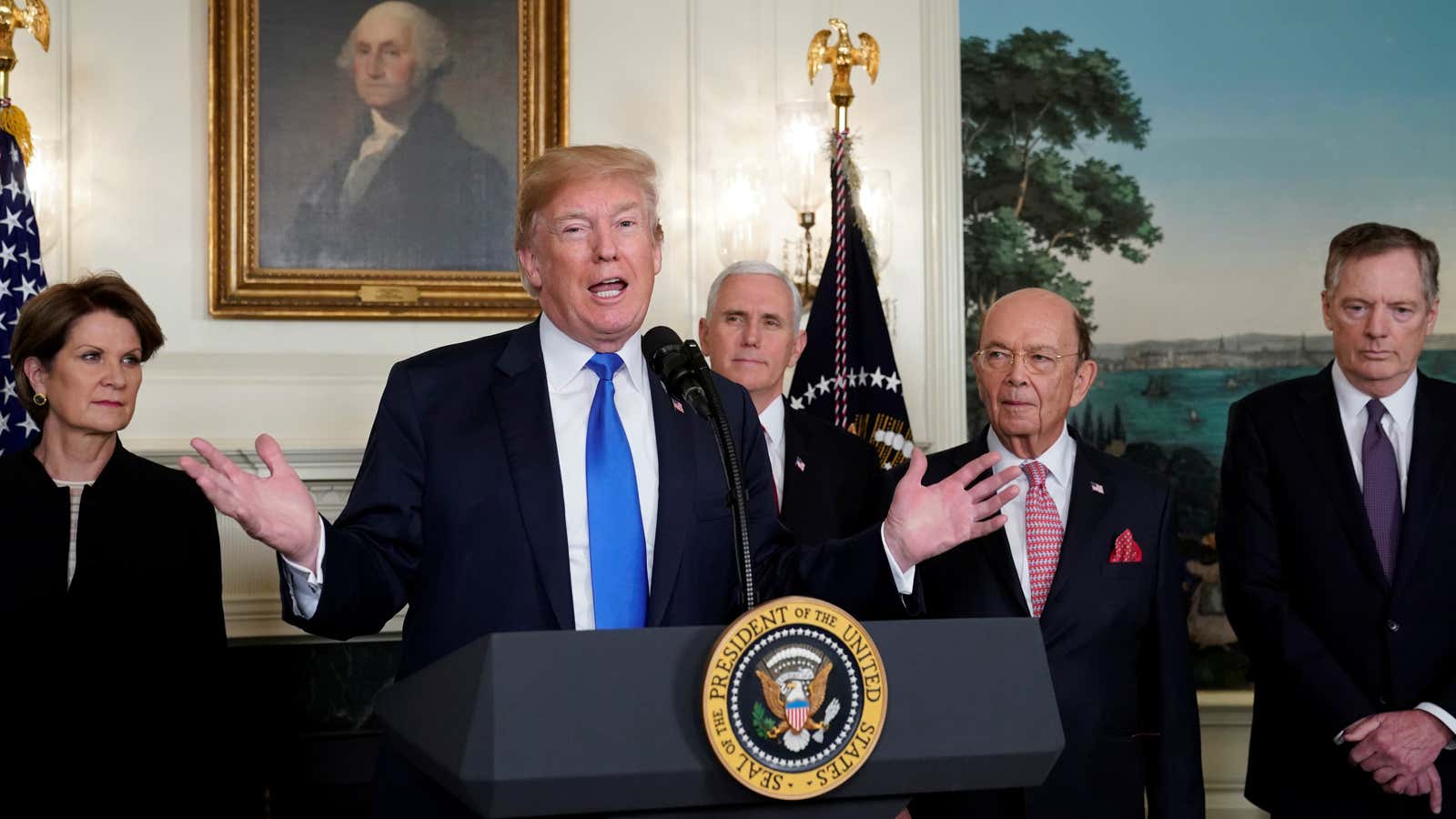Last year, the US dollar experienced its worst year in more than a decade. But after stumbling through the start of this year, the greenback has finally started to find its feet.
An index of the US currency against a basket of major trading partners is now at its highest level since mid-December, after gaining 4% in the past month, supported by rising US interest rates and a steadily growing economy, and despite the unpredictable policies and statements coming out of the White House.
The dollar has also been helped by the fact that traders can’t see many appealing alternatives. A slowdown of economic growth in Japan and Europe have stopped these central banks from tightening monetary policy. This puts America’s economic recovery further ahead, and widens the gap between central banks’ policy stances, which comes together to makes the dollar more attractive as a higher-yielding currency versus major counterparts like the euro or yen.
These factors have also put a big dent in emerging-market currencies.
So far this year, the Argentinian peso has plummeted 23% against the dollar, followed by the Turkish lira with a 17% decline. Most of the more liquid emerging-market currencies are down on the year against the dollar. While there are many country-specific reasons for the declines, the strength of the dollar is making everything worse for them. Investors are wondering how governments and companies in emerging markets will pay for their dollar-denominated debts as interest rates continue to rise and the dollar gets even stronger.
Still, it’s decisions of some of these governments that are primarily to blame. Argentina’s move to loosen its inflation targets was followed by a collapse in the peso as it made traders fret about whether economic and fiscal reforms would be maintained. Turkey’s president, Recep Tayyip Erdogan, said that he plans to take more control over interest rates should he win re-election next month (as widely suspected). Traders sent the lira down to its weakest levels on record in response, knowing that Erdogan has said he is against increasing interest rates to battle Turkey’s stubbornly high inflation.
Over the weekend, US treasury secretary Steve Mnuchin said the burgeoning trade war between the US and China was “on hold.” Even accounting for the usual mixed messages from the Trump administration, stocks are up and the dollar is creeping ever higher.
This is more bad news for emerging-market currencies. At the time of writing on Monday, the Mexican peso fell by 1%, the South African rand hit its lowest level in five months, and the Turkish lira was down another 2% against the dollar.
